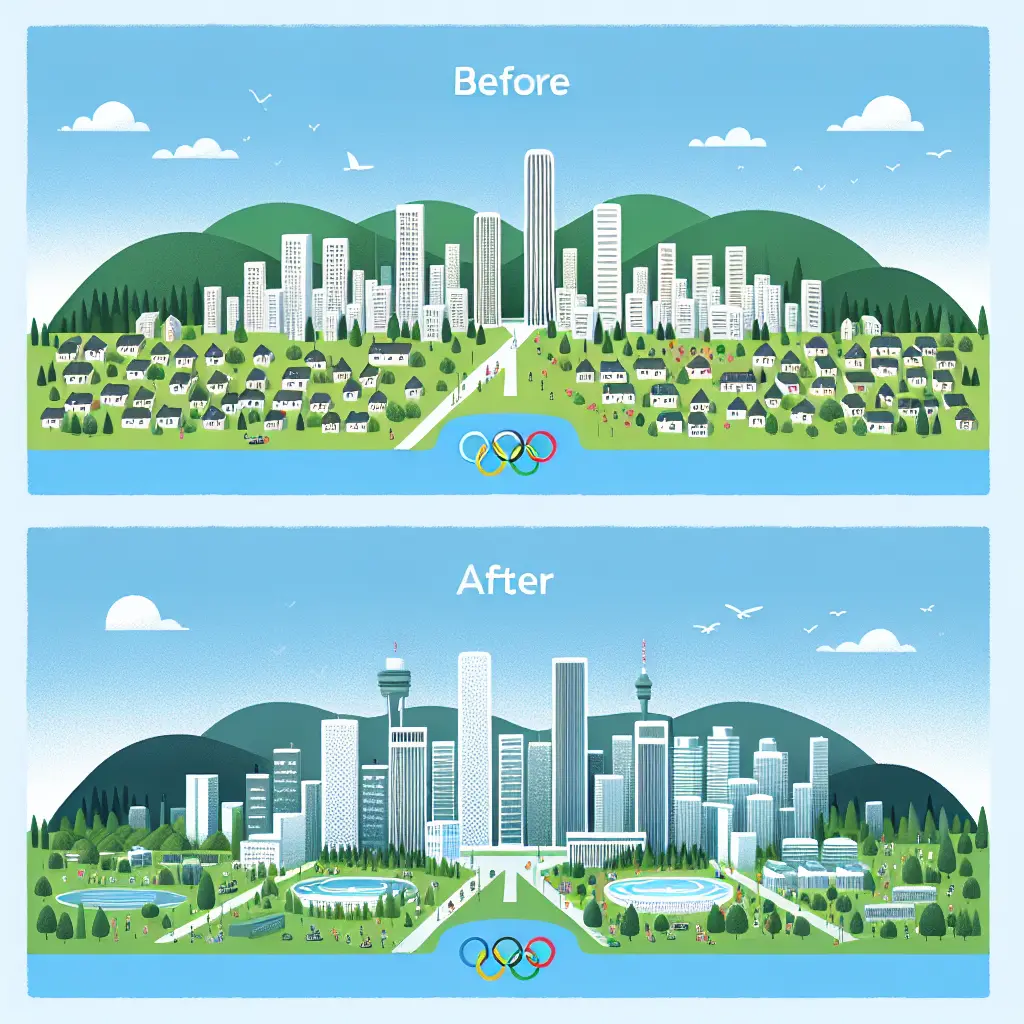The Olympic Games are not just a grand spectacle of sportsmanship and international unity; they also serve as a catalyst for massive urban development and regeneration. As cities around the globe vie for the honor of hosting, the impact on urban landscapes, economies, and communities is profound and multifaceted. From infrastructure improvements to social changes, the transformation prompted by the Olympics provides a unique lens through which we can examine the broader implications of urban development.
Historically, Olympic host cities have undertaken extensive infrastructure improvements to accommodate the influx of athletes, media, and spectators. These developments range from the construction of new sports venues and hotels to significant upgrades in transportation systems. For example, prior to the 2012 London Olympics, the city invested heavily in upgrades to its public transport network, including expansions to the East London Line and upgrades to the Docklands Light Railway, enhancing connectivity and leaving a lasting legacy for London's commuters.
Moreover, the introduction of new sports facilities often sparks further urban development. Post-Games, these venues can transform into community sports centers, concert halls, or other civic spaces, contributing to the urban fabric long after the medals have been awarded. However, the challenge remains to ensure these buildings do not become 'white elephants' – expensive and underused relics of the Games.
The economic effects of hosting the Olympic Games are often debated. While the immediate influx of tourists provides a short-term economic boost, the long-term benefits are less clear. Studies suggest that while cities like Barcelona and Sydney leveraged the Olympics to enhance their global image and attract future tourism, others like Athens struggled with post-Games economic strain due to underutilized facilities and debt from construction.
Hosting the Olympic Games can also catalyze significant social changes in host cities. These events bring global attention and a sense of pride to local communities, boosting volunteerism and civic engagement. However, they can also lead to displacement and gentrification, as was controversially noted in Beijing 2008 and Rio de Janeiro 2016.
The Legacy and Economic Impact
The environmental impact of such large-scale development projects is profound. The construction of new venues and infrastructure can lead to habitat destruction, pollution, and increased carbon footprints. Recognizing these challenges, recent Games have embraced more sustainable practices. The concept of sustainable urban development during the Olympics aims to mitigate environmental damage while promoting eco-friendly innovations.
The strategic urban planning involved in preparing for the Olympics often accelerates urban development that might otherwise have taken decades. Olympic regeneration projects can revitalize neglected districts, turning them into bustling hubs of activity and commerce. London's Stratford is a prime example, transformed from an industrial wasteland into a vibrant mixed-use area that continues to grow.
The notion of an 'Olympic legacy' is pivotal in justifying the vast expenditures involved in hosting the Games. This legacy can be tangible, in the form of infrastructure, housing, and facilities, or intangible, such as the boost in international profile or local community spirit. Effective planning and commitment to post-Olympic use are crucial in ensuring that the Games leave a positive lasting impact.
As we look to future Olympic Games, technology plays an increasingly significant role. Innovations such as Apple's decision to allow developer access to its NFC technology can inspire new ways to enhance visitor experiences through seamless digital interactions. This move could potentially revolutionize how future ticketing and payments are handled at large-scale events like the Olympics.
Looking Towards a Sustainable Future
Moreover, with Apple Maps now available on the web in beta, visitors can navigate host cities with greater ease than ever before. This advancement supports more sustainable urban exploration by helping tourists optimize their travel routes to reduce carbon footprints.
The impact of hosting the Olympic Games on urban development is complex and multifaceted. While cities often experience a metamorphosis that includes modernized infrastructure, increased global visibility, and enhanced local pride, these benefits must be weighed against economic burdens, potential environmental degradation, and social upheaval.
For future host cities, learning from past experiences and integrating sustainable practices is crucial in ensuring that the legacies left by the Games promote long-term prosperity and community well-being.
As we continue to watch the evolution of Olympic host cities, let us appreciate not just the immediate dazzle of the Games but also the broader ripple effects they leave on urban landscapes and societies.








Leave a Comment